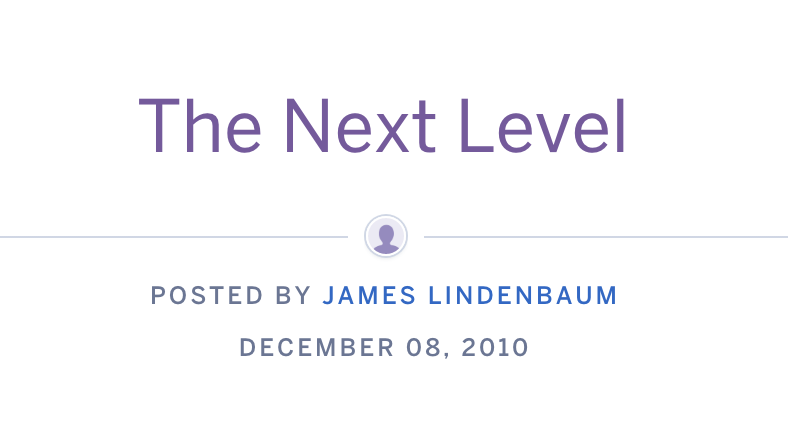It's been almost exactly a decade since Salesforce acquired Heroku. https://blog.heroku.com/the_next_level
Good time to share a few reflections, especially in light of the Slack acquisition.
Good time to share a few reflections, especially in light of the Slack acquisition.
1/ Heroku was a hot company in 2010. But we had yet to deliver out our full product vision: the platform was Ruby-only, lacked background processes and a bunch of other capabilities needed for more substantial apps.
2/ The decision to accept the acquisition was made by me, the two other founders, and the CEO. (With input from our investors, of course.)
We saw it as a big funding round: never need to raise money again, and in the meantime get legitimacy for enterprise sales.
We saw it as a big funding round: never need to raise money again, and in the meantime get legitimacy for enterprise sales.
3/ But let's be honest: the money mattered. Getting a good outcome for investors, for early employees, and yes for ourselves.
3a/ (I put a bunch of the proceeds from this into the 2014 Colorado campaign to legalize recreational marijuana. So I guess you can partially thank Salesforce for that legal weed you've been enjoying during lockdown)
4/ Also—and this might seem hard to remember looking back—Y Combinator was financially unproven. They had built a huge about of prestige the the Valley, but IIRC at the time they were still in the red. ( @paulg correct me if I have that wrong)
5/ I figured Heroku's return for YC would help prove their model. That mattered to us, given that going through the YC program had been a life-changing experience.
6/ After the acquisition, the Salesforce folks I worked with were great. They generally wanted whatever was best for Heroku's team and customers. I learned a lot from time spent with @GeorgeHuSF, @Benioff, and others.
7/ On the downside, there were many ways SFDC values didn't overlap with Heroku values. One prominent example is Heroku's team valuing sleek and minimalist design.
8/ That's not a knock on SFDC or Heroku: values aren't right or wrong, they just are. But it created some collaboration friction.
See also: https://gist.github.com/adamwiggins/5687294
See also: https://gist.github.com/adamwiggins/5687294
9/ There was also this theory that Heroku for Java would be a game-changing, and that the Java folks from SFDC could help us get there. @jesperfj and others did great work here.
10/ We released the product (see https://blog.heroku.com/java ) but I don't think it was an important part of Heroku's long-term impact compared to the new world of Node.js, Go, etc.
11/ In the end I think there was somewhat less strategic alignment between SFDC and Heroku than both parties had hoped.
Heroku did get access to customers we couldn't have reached on our own, but not being on the Master Services Agreement undercut that substantially.
Heroku did get access to customers we couldn't have reached on our own, but not being on the Master Services Agreement undercut that substantially.
12/ And maybe we helped address the "Oracle's got Java and SQL, what do you have?" question for Salesforce. But for extending and integrating Salesforce products, I think http://Force.com remained the better method.
13/ Looking back, would I still make the same decision to sell?
Hindsight counterfactuals are tricky, but...
Hindsight counterfactuals are tricky, but...
14/ The things I am most proud of making at Heroku shipped well after the acquisition.
That is: the Cedar stack including multi-language support, arbitrary processes, streaming logs, and buildpacks. Plus http://12factor.net .
So empirically seems like it was a good decision.
That is: the Cedar stack including multi-language support, arbitrary processes, streaming logs, and buildpacks. Plus http://12factor.net .
So empirically seems like it was a good decision.
15/ And I'm an active user and customer (the backend for @MuseAppHQ runs there) of Heroku today. The platform has only gotten better since I left. Build pipelines are awesome.
16/ I'm glad Heroku exists and continues to be good. I never needed to learn Kubernetes or whatever, and I get to deploy my web apps with git push and zero configuration.
So in the sense of stewardship and longevity, Salesforce has been a good home for Heroku.
So in the sense of stewardship and longevity, Salesforce has been a good home for Heroku.
17/ Hoping the same will be true for Slack i.e. continuing to exist and be good over the longer term. The Heroku precedent seems to indicate that's a plausible outcome.

 Read on Twitter
Read on Twitter


